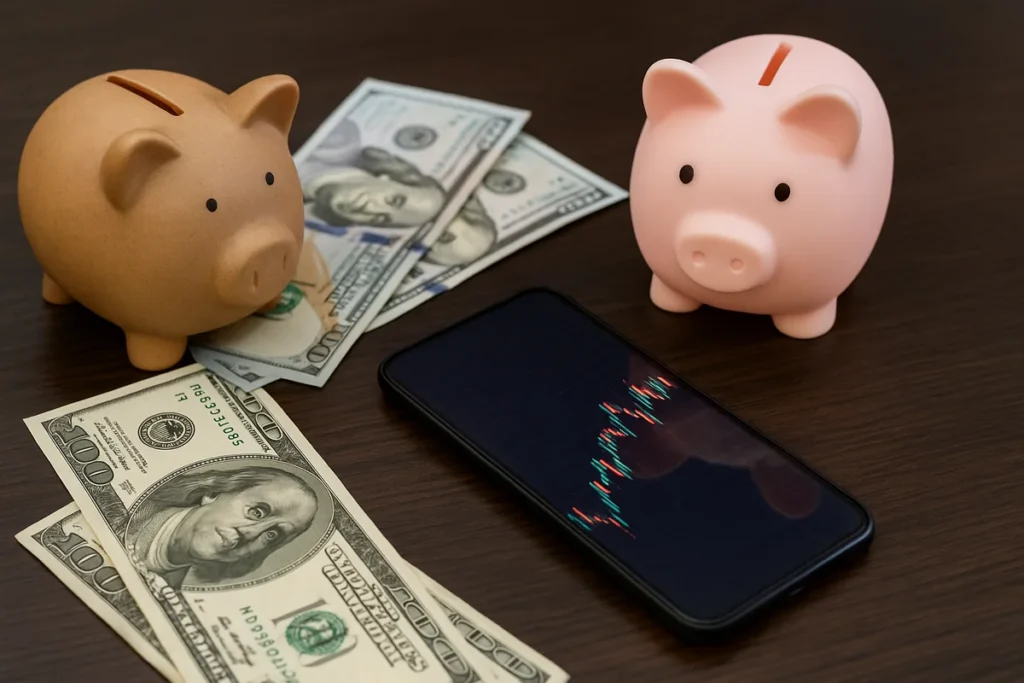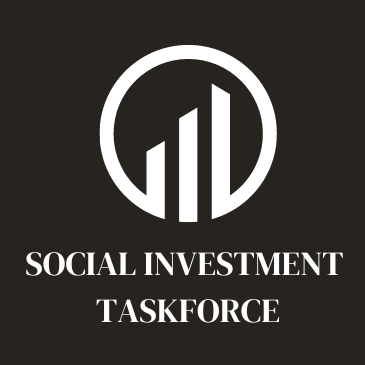Social investment banking is the future of ethical finance because it delivers better returns while reducing risk. You’re probably here because your investment strategy feels like it’s missing something. And you are right. Most investors have missed the major shift in finance since online banking changed everything.
Believe it or not, banks are rapidly moving towards sustainable finance models. If you’re not paying attention, you could get left behind.
In this article, we will cover:
- How socially responsible investing beats traditional approaches
- Why major financial institutions are restructuring everything
- Your advantage in tomorrow’s investment world
- How to transition without disrupting current returns
Our experience shows investors can achieve better performance if they can balance profits and purpose. Ready to see what authentic social impact banking looks like?
What Social Impact Banking Really Looks Like
Social impact banking shows you real results, not just fancy promises. And it’s true that regular banks only care about making money. But these banks track actual outcomes like creating jobs, helping the environment, and building stronger communities.
The difference is that Social Impact Banking has to prove what they do. Now that you know what to expect, you can see that socially responsible investing works differently from regular banking.
Here’s what makes it unique at some point:
Beyond the Labels: Real Criteria
Real social impact needs proof because just talking doesn’t create change.

That’s why good banks don’t just say they help people. Instead, they count things like new jobs, cleaner air, and stronger neighborhoods. Every year, these banks share reports that show exactly what they did.
When banks are open about their work, you can see where your money went and what good things happened because of it.
Measurable Outcomes That Count
Genuine social impact banking produces hard numbers and concrete results you can verify yourself.
That’s why, look for banks reporting real numbers: 15% carbon reductions, 90% loan success rates, or 500 housing units funded. Instead of just making claims, these banks prove their work actually helps people through outside audits and clear reporting.
Red Flags to Avoid
Watch out for banks that use ethical finance terminology without backing it up. If they can’t show you specific case studies, avoid them completely. Also, watch out for companies that promise unrealistic returns while claiming massive social benefits. They’re usually neither socially responsible nor profitable.
Last year, Sarah (a friend of mine) fell into a similar trap. She invested with a bank promising 15% returns plus “world-changing impact.” Six months later, she discovered they’d used her money for regular loans with zero social benefit.
Once you know what authentic ethical banking looks like, you’ll understand why the entire financial world is racing toward this model.
The Forces Reshaping Banking Forever
Regulatory pressure, consumer demands, and climate risks are hitting traditional banks at the same time, and they can’t ignore them anymore. Every financial institution faces the same choice: adapt or get left behind.
Here’s what’s driving this major industry transformation:
- Regulatory Pressure Getting Serious: New laws are making old banking ways cost more money. For example, Europe now makes banks report how climate change affects their business. Other countries are copying these rules quickly.
- Money Moving to Values-Based Banks: The largest wealth transfer in history is happening right now. These Millennials and Gen-Z investors control $30 trillion, and they’re picking banks that care about good causes over banks that only care about profits. Another impressive thing is research from Stanford shows that two-thirds of millennial and Gen Z investors worry a lot about things like pollution and climate change.
- Climate Risks Breaking Old Models: Here’s where things get interesting. Climate damage is causing problems throughout the banking world. So, everyone is getting a rain-check. For instance, Banks are learning that their investments in oil and gas companies will cost them big money later. At the same time, insurance companies won’t cover risky areas anymore (too bad for those banks that have been using the old way to do their business).
This shift is changing how the whole investment world works. You can already see real changes happening everywhere. Take our suggestion on understanding what this means for your money and make careful choices about where you invest.
Why Smart Money Is Abandoning Old Models
When Goldman Sachs commits $750 billion to sustainable finance, they’re making a strategic business choice based on real research and proven results.

The world’s largest banks have figured out something that most regular investors haven’t caught onto yet:
- Risk Reduction Works: Banks that lend to ethical companies often see fewer loan failures than regular banks (basically, playing safe actually works). Here’s why. Banks that focus on responsible investing spend more time learning about companies before lending money to them. They look for environmental problems and social issues. But regular banks might miss these warning signs. This careful review helps spot trouble early, before it costs money.
- Regulatory Advantages Pay Off: Forward-thinking institutions are preparing for new rules before they hit. These early adopters of sustainable finance already have their reporting systems in place. When environmental regulations hit their competitors, these banks avoid the costly upgrades and fines that others face.
- Customer Retention Increases Profits: People who pick values-based banks stay loyal much longer than regular customers. They stick around 40% longer on average. Plus, they refer more friends and keep larger account balances. This loyalty means more profits that keep growing over many years, not just a few months.
- Talent Attraction Improves Performance: The best investment professionals want work that makes a difference because money alone doesn’t drive top talent anymore. Banks with strong social impact programs attract top talent and keep them longer. This reduces expensive hiring costs while improving overall performance across all client services.
We recommend looking for banks that show you these exact benefits when evaluating your options. This approach protects your money while creating positive change. You don’t have to choose between the two.
Your Competitive Edge in Tomorrow’s Market
Early movers in ethical finance are getting ahead while others wait and see. You’ll be surprised to know that most investors are still debating whether this change is real. Meanwhile, the prepared investors have already started positioning themselves.
Follow this plan to get positioned before the competition figures it out:
Step 1: Check Your Risk Exposure
Always look back at your investments because you never know which assets are facing trouble down the road. This includes fossil fuel investments, companies with weak governance, or businesses ignoring environmental issues. Believe it or not, these investments might seem profitable now, but they’ll likely become costly when new rules force them to change how they operate.
Step 2: Find the Fast Movers
Sustainability has been a hot topic for a few years now. That’s why you should identify sectors that are switching to sustainable models quickly. For example, renewable energy companies and clean technology firms often perform better during transitions. When choosing, look for organizations that solve problems rather than create them.
Step 3: Pick Proven Partners
Choose investment professionals who truly understand ethical finance, not just the marketing language. When you meet with them, ask them to show you real results from their responsible investment work. Then get specific examples and talk to their other clients to verify their track record.
Step 4: Plan Your Timing
Take your time when shifting your portfolio to avoid hurting your current returns. You might be wondering if you need to make all these changes immediately, but changing everything at once isn’t necessary. A slow transition keeps your assets stable while reducing the risks that come with quick changes.
The window for getting in early is still open, but it won’t stay that way much longer.

Ready to Switch to Ethical Finance
The difference between successful ethical investing and expensive mistakes comes down to one thing. You need the right partner who’s already helped other people make this switch.
Ethical finance isn’t complicated, and shifting towards it doesn’t have to be hard either. But you do need someone with real experience. Start by asking potential partners to show you actual results from their social impact work. Look for specific examples of companies they’ve invested in and communities they’ve helped. If they can’t show you concrete proof, keep searching.
Also, watch out for advisors who promise “guaranteed” social returns. Real responsible investment means honest conversations about what you can expect from both profits and social change.
At Social Investment Taskforce, we’ve spent years helping clients make this transition successfully. Our fund management team brings decades of banking experience plus proven results in social impact investing. We create personalised strategies that deliver both the returns and impact you want.
Contact us today to discuss positioning your portfolio for the future of ethical finance.


